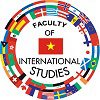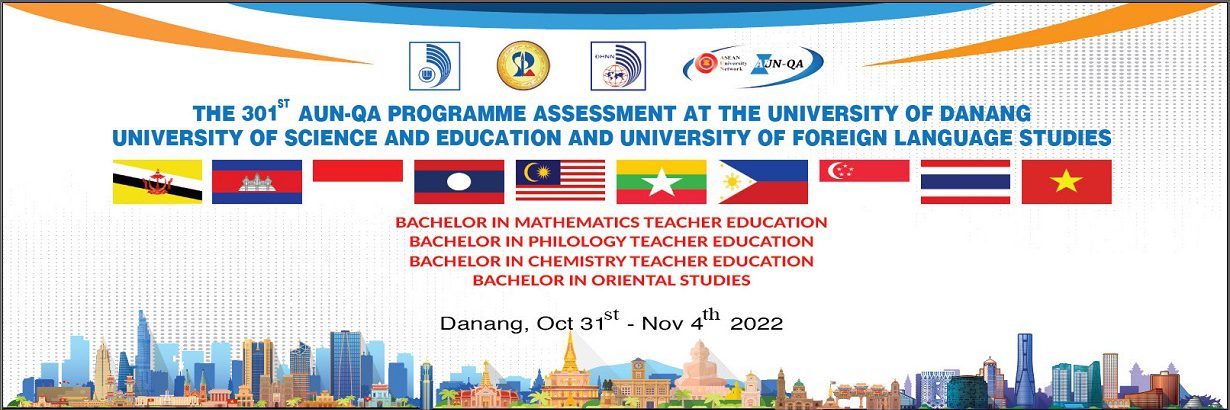BRIEF INFORMATION OF THE UNDERGRADUATE PROGRAM IN ORIENTAL STUDIES
- Program objectives
1.1 General objectives
The undergraduate program in Oriental Studies equips students with fundamental and in-depth knowledge related to Oriental Studies, with a focus on area studies namely Northeast Asia, South Asia and Southeast Asia; thus, provides students with skills to apply knowledge of history, culture, economics, politics, religions, and international relations of countries in the above-mentioned regions in doing research, teaching and future work in the fields of foreign affairs and international cooperation. Besides, students are expected to develop ethical and political commitment, a professional working attitude as well as satisfactory overall health to work efficiently in the fields related to Oriental Studies to meet the requirements of the labor market in the era of international integration.
1.2 Specific Objectives
- To formulate students’ political and moral consciousness and good sense of serving the people.
- To develop students’ knowledge of social sciences and humanities, Oriental Studies, Northeast Asian Studies, South Asian and Southeast Asian Studies to research global and regional issues.
- To improve students’ English language skills and one out of 4 other foreign languages (i.e. Chinese, Japanese, Korean and Thai) including listening, speaking, reading and writing proficiently as these are keys to conducting academic research and accomplishing their future professional tasks.
- To develop students’ knowledge and skills to research, teach and work in the fields related to Oriental Studies.
- To enhance students’ ability to pursue further study at higher levels in domestic and foreign educational institutions.
- Program Expected Learning Outcomes
Graduates of the undergraduate program in Oriental Studies are expected to be equipped with good skills, abilities and attitudes to:
PLO1: apply knowledge of social sciences and humanities in working.
PLO2: apply knowledge of history, culture, economic, politics, religious and international relations in Northeast Asia, South Asia and Southeast Asia in working.
PLO3: conduct scientific research related to history, culture, economic, politics, religious and international relations of Northeast Asian, South Asian and Southeast Asian countries.
PLO4: evaluate political, economic, law and social movements and trends in Asian and global contexts.
PLO5: organize activities related to foreign affairs and public relations.
PLO6: develop independent, creative and critical thinking and effective teamwork skills.
PLO7: apply communication skills in Vietnamese and either English, Korean, Japanese, Chinese or Thai languages effectively in professional activities.
PLO8: construct life-long learning as a skill for comprehensively personal development.
PLO9: apply legal, professional, ethical, civil responsinilities and obligations in real life situations.
- Curriculum Structure
|
|
Knowledge bloc
|
Course name
|
No. of credits
|
|---|---|---|---|
|
3.1
|
General Knowledge
|
|
|
|
3.1.1
|
Marxist and Lennist Theories and Ho Chi Minh’s Thought
|
Basic Principles of Marxism and Leninism
|
3
|
|
Marxist-Leninist political economy
|
2
|
||
|
Revolutionary Paths of the Viet Nam Communist Party
|
2
|
||
|
Ho Chi Minh’s Thought
|
2
|
||
|
Scientific Socialism
|
2
|
||
|
3.1.2
|
Foreign Languages
|
Integrated English Skills A2.1
|
3
|
|
Integrated English Skills A2.2
|
4
|
||
|
Integrated English Skills B1.1
|
4
|
||
|
Integrated English Skills B1.2
|
4
|
||
|
Integrated English Skills B1.3
|
4
|
||
|
Integrated English Skills B1.4
|
4
|
||
|
Integrated English Skills B1.5
|
4
|
||
|
Advanced English
|
3
|
||
|
Translation
|
3
|
||
|
Interpreting
|
3
|
||
|
Specialised Graduation course (Advanced Professional English)
|
4
|
||
|
Second Foreign Language 2.1
|
3
|
||
|
Second Foreign Language 2.2
|
3
|
||
|
3.1.3
|
Social Sciences
|
Research Methods
|
2
|
|
Informatics
|
2
|
||
|
Social Statistics
|
2
|
||
|
Fundamental of Vietnamese Culture
|
2
|
||
|
Introduction to Law
|
2
|
||
|
3.1.4
|
Physical Education
|
PE 1 (Athletics)
|
1
|
|
PE 2 (Physical Exercise)
|
1
|
||
|
PE 3: (Students choose one of the following)
|
1
|
||
|
PE 4 (Students choose one of the following)
|
1
|
||
|
3.1.5
|
Military training
|
Military training
|
4
|
|
3.2
|
Specialized Knowledge
|
|
|
|
3.2.1
|
Fundamental Knowledge
(Compulsory)
|
Introduction to Oriental Studies
|
2
|
|
Introduction to Ethnology
|
2
|
||
|
History of World Civilizations
|
2
|
||
|
Introduction to Sociology
|
2
|
||
|
Administrative Documents
|
2
|
||
|
Introduction to Economics
|
2
|
||
|
Introduction to Area Studies
|
2
|
||
|
3.2.2
|
Specialized Knowledge
|
|
|
|
Compulsory
|
Oriental Thoughts and Religions
|
3
|
|
|
History and Culture of Northeast Asia
|
3
|
||
|
History and Culture of Southeast Asia
|
3
|
||
|
History and Culture of South Asia
|
2
|
||
|
History and Culture of China
|
2
|
||
|
History and Culture of Japan
|
2
|
||
|
History and Culture of Korea
|
2
|
||
|
Northeast Asian Economies
|
2
|
||
|
South Asian and South East Asian Economies
|
2
|
||
|
ASEAN Free Trade Area
|
2
|
||
|
ASEAN Community Law
|
2
|
||
|
Political Institutions of Northeast Asian countries
|
2
|
||
|
Political Institutions Southeast Asian countries
|
2
|
||
|
International Relations in Northeast Asia
|
3
|
||
|
International Relations in Southeast Asia
|
3
|
||
|
Cultural Diplomacy
|
2
|
||
|
International Law of the Sea
|
2
|
||
|
Electives
|
Indigenous Cultures of the Central Viet Nam region
|
2
|
|
|
International Organizations
|
2
|
||
|
Introduction to Journalism and Communication
|
2
|
||
|
Vietnam-China Relations
|
2
|
||
|
Vietnam-India Relations
|
2
|
||
|
Vietnam-Japan Relations
|
2
|
||
|
Vietnam-South Korea Relations
|
2
|
||
|
Vietnam-ASEAN Relations
|
2
|
||
|
Intercultural Communication
|
2
|
||
|
ASEAN+3 Economic Cooperation
|
2
|
||
|
Contemporary Religious Issues
|
2
|
||
|
Tourism Operation
|
2
|
||
|
3.2.3
|
Supportive Knowledge
(Compulsory/ Elective)
|
Soft skills
|
2
|
|
Office Administrative skills
|
2
|
||
|
Foreign Affairs Operation
|
2
|
||
|
Public Relations
|
2
|
||
|
Field trip
|
2
|
||
|
3.2.4
|
Internship and graduation thesis (or graduation exam)
|
Internship
|
2
|
|
Study 2 specialized graduation courses
|
8
|
||
|
or Graduation Thesis
|
8
|
||
|
Program TOTAL
|
134
|
||
- Job opportunities after graduation:
Graduates from the Oriental Studies undergraduate program can research, teach and work in fields related to countries in Asia, particularly in such areas as Northeast Asia, South Asia and Southeast Asia, at universities and colleges, research institutes, foreign affairs agencies, national security agencies, the media; representative offices, state-owned or private enterprises; governmental and non-governmental organizations in Viet Nam and in other countries.
- Postgraduate opportunities after graduation:
Graduates from the Oriental Studies undergraduate program can:
– Accumulate and apply knowledge into further study and research at higher levels at domestic and foreign educational institutions.
– Access new technologies, self-study, self-research to improve capabilities to meet individual and social needs, and take over management positions in agencies and enterprises.

